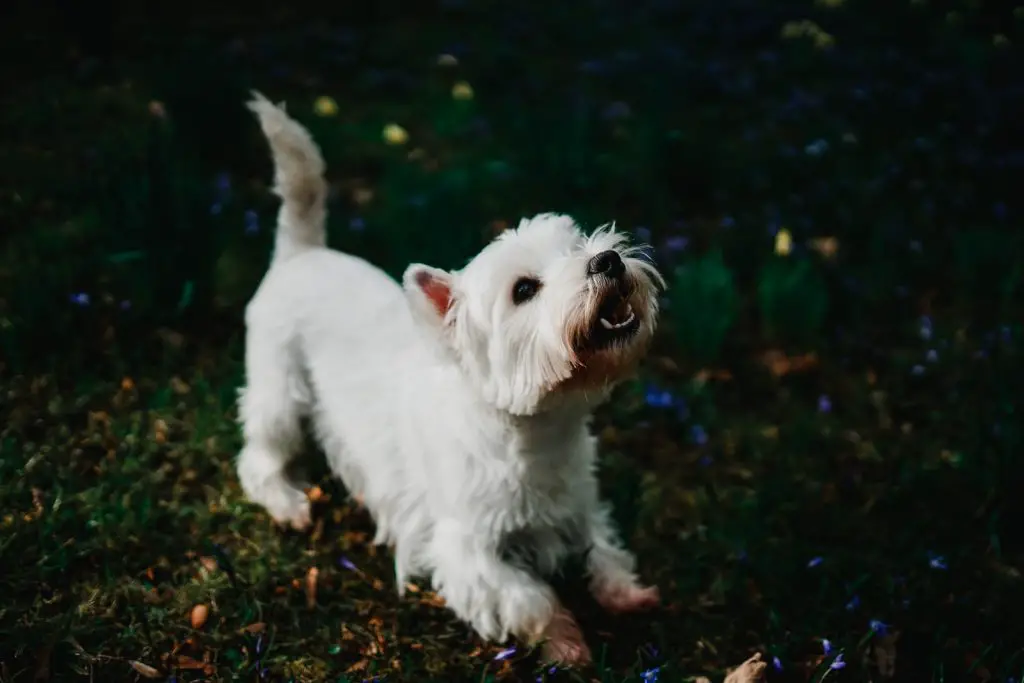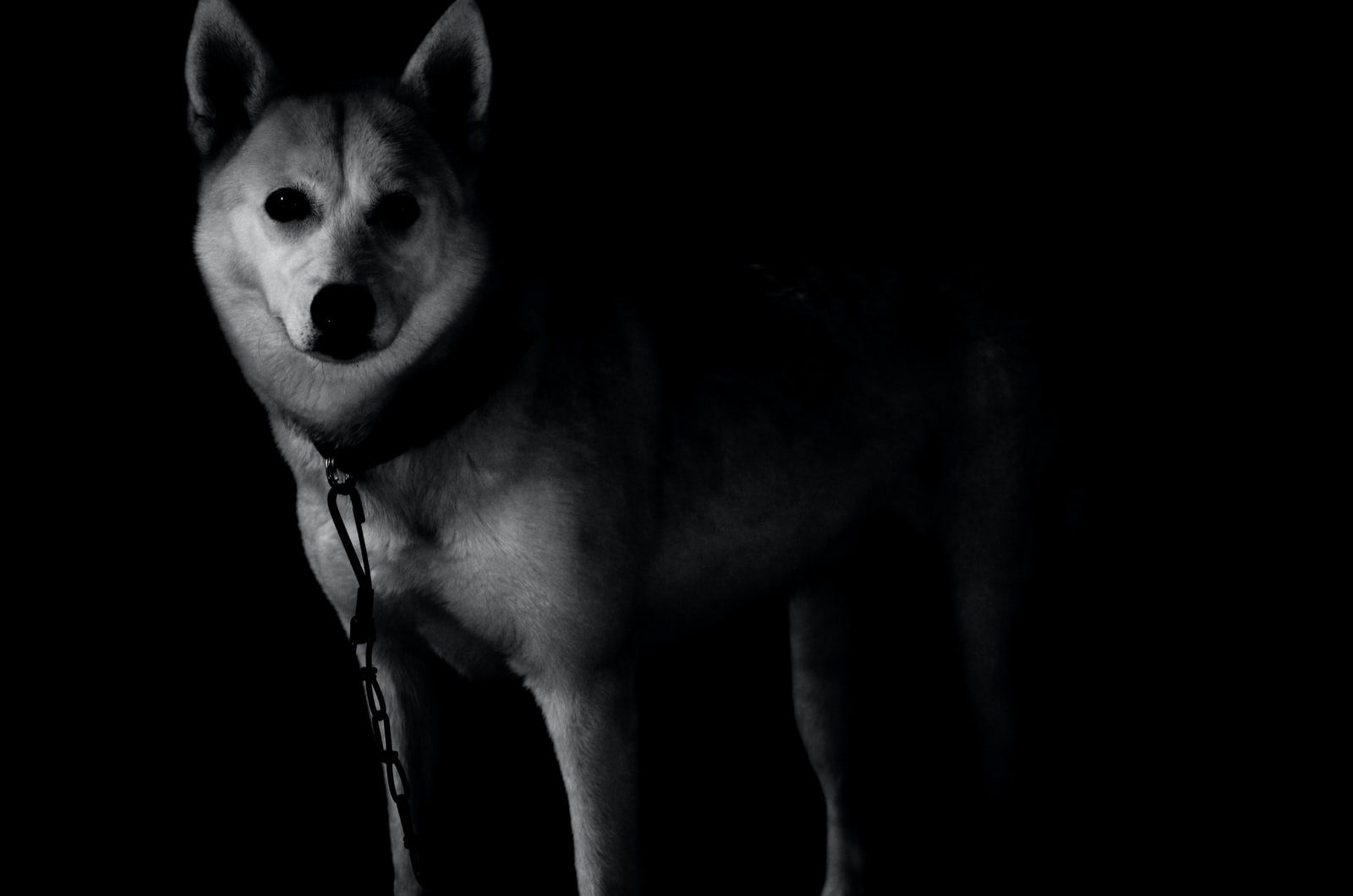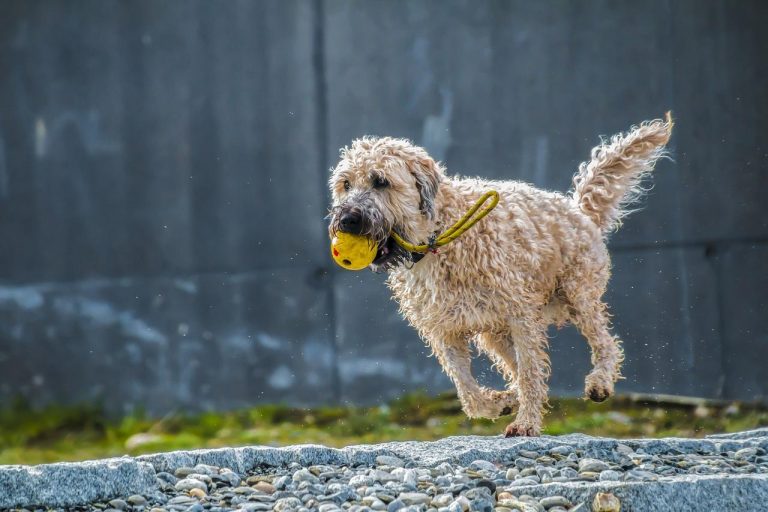As a dog owner, you’re no stranger to sleepless nights when your furry friend just wouldn’t calm down and let you rest. Your restless dog keeps you wondering how to calm a dog down at night. The barking can get very loud, disturbing, not only you but your neighbors too.
Going to work after getting zero sleep can put a strain on your well being, and you finally realize that owning a pet isn’t all that you thought it would be.
Dogs are naturally very playful and exciting creatures, but their hyperactivity can become an issue if they start raising hell now and then.
Sometimes this behavior is rooted in something serious like stress and anxiety, but other times, your dog is just bored and wants to get your attention in any way it can. It can only be a way for it to break out of monotony.
It’s not easy to control your dog when it starts acting hyper, but there are some ways you can keep it relaxed. Learn how to calm a dog down at night by following these simple techniques.
15 Ways to Calm Your Dog Down At Night
So, you want to know how to calm a dog down at night. Well, here is a list of 15 different ways you can calm your dog at night. Be sure to check the cool infographic below.

Keep things consistent throughout the day to let your dog recognize when it is time for bed. Take your dog on a walk at around the same time each day.
Feed your dog consistently throughout the day and a few hours before bed. Keep the hour before bedtime relaxed. Ensure your dog gets its toilet break just before bed.
It’s natural for you to rush to your dog if it starts behaving abnormally. If your dog grabs something it shouldn’t, you can’t help but chase after it. Dogs don’t particularly care if the response they’re getting is positive or negative, as long as they’re the center of attention in the house.
When your dog starts acting out, instead of ignoring this behavior, you start giving it attention and actively looking for ways to calm it down. This encourages the dog to behave like this again in the future if it wants your undivided attention.
Try ignoring this behavior and see how your dog behaves then. When you see your dog jumping noisily around you and barking loudly, pay no mind to it and act as if nothing’s bothering you. When it stops, reward it with a treat.
Remember when you were a kid, and you would only feel safe when you had your favorite plushy next to you? Dogs can also feel secure when they’re snuggled next to a cuddly toy.
When you’re picking out a toy, make sure it isn’t squeaky, or your dog will think it’s time to play. That’s because squeakers are known to trigger hyperactivity in dogs. Also, avoid toys that can be used to fetch or tug.
Toys that remind your dog of bedtime are ideal because they’ll signal to them that play-time is over, and it’s time to sleep. Anything soft and squishy will be perfect for keeping your dog calm and relaxed.
Sometimes not having a comfortable place to sleep can cause your dog to act out. When they’ve been moved from their usual sleeping spot or their doggie bed, they can behave abnormally and cause a disturbance in your house.
As a dog owner, you need to take good care of them and keep their sleeping spot as comfortable as it can be. Make sure it’s clean and cozy at night, so your dogs don’t refuse to settle down.
Giving your dog something to chew or a chew toy can also help calm them down. Stuff a Kong with peanut butter or provide them with a bully stick to distract them from making so much noise. There are loads of options for puzzle or interactive toys in the market that you can take full advantage of during these times.
To manage their hyperactive behavior, you can also schedule relaxing walks during the evening to get them to release some of their pent up energy. After you get back home, you’ll notice that your dog won’t be as active as it was before. You’ll only have to wait another hour or so until they start feeling drowsy and tired, and then you can put them to bed.
If you have a puppy that you can’t take on long walks, then one thing you can do is have them on a slightly longer leash to allow them a lot more freedom to explore places. Make sure they get a good exercise in so they won’t become super active at night.
It’s essential to keep your dogs active throughout the day by engaging them in fun and mentally stimulating activities and exercises. This will help them get into a more regular sleeping routine. Their bodies will start getting tired as it gets dark outside, allowing both you and your neighbors to get a good night’s sleep.
If you don’t give your dogs enough play-time during the day, then you can expect to have a restless dog at night. Playing games like fetch or going for a run may help alleviate their stress levels. You’ll be surprised to learn how getting fresh air can work wonders for your dogs.
If dog parks are too overcrowded, then it’s best to avoid them because too much social interaction can give your dog stress as well.
Music is known to have calming effects on people. Classical tunes are perfect on days when you get too caught up in your head and feel anxious. You’ll be surprised to know that music can have the same effect on dogs as well.
Reggae and soft rock can help reduce your dog’s heart rates, alleviate their cortisol levels, and calm them down during stressful times. You can even look for calming music that’s been made specifically for dogs.
During a thunderstorm or fireworks, your dog can quickly feel agitated. Play music to reduce some of its stress and anxiety.
Just like massaging helps you relax, it can also help relieve your dog’s stress. Not giving your dog enough physical contact may also be a reason why it’s acting out.
Give it slow ear rubs, foot rubs, or head rubs, at least for 15 minutes to bring their stress levels under control. A dog’s ears, feet, and top of the head are known to be its main pressure points, that’s why you need to target them first.
It’s in your dog’s nature to spend time with you, so you need to make time for it in your schedule and give it your full attention so it can feel loved.
Aromatherapy, known as essential oil therapy, is the practice of using essential oils in controlled quantities to restore your mental well being. Dogs are known for their impeccable sense of smell. They’re able to sniff out a lot more than humans ever can, which is why they can benefit from this practice even more.
You’ll find out that certain smells can have calming effects on your dog. Your vet can help you look for the right oils that are specially formulated for dogs. You need to make sure they’re adequately diluted before applying them. Massage them in and avoid applying them to places where they can easily get licked off.
Essential oils such as lavender, chamomile, bergamot, and cedar are known to have calming properties, so stay on the lookout for formulas containing these oils. Citrus, tea tree, clove, anise, and other such oils need to be avoided because they’re harmful to dogs.
When nothing works, you may have to adopt a slightly different approach. Some soothing strategies can make your dog be a lot more at ease and calm it down.
Put your dogs inside a darkened room and make sure there are no sources for external stimulation in there. It will also help if the room is somewhat soundproof because loud noises from the street can also upset your dog. If you can, place some of your clothes inside that would remind it of you.
Sometimes it’s your stress levels that can make your dog act a certain way. It can feed off of your energy and become anxious. Take deep breaths and speak in low and calming tones to let your dog know that there’s no reason to be afraid. It may also help to unwind and relax and see how that affects your dog.
The easiest possible way to keep your furry friends in a healthy state is by avoiding places and situations that can trigger their stress and hyperactivity. If you’ve seen your dog act out during fireworks, then you know you’ll have to keep an eye on them at New Year’s Eve and Fourth of July.
Place your dog in an interior room where it can’t hear the noise, play classical tunes before the fireworks begin, give it some CBD oil, and use anti-anxiety wraps to reduce its stress levels.
Natural remedies can also calm your dog down. There are many calming aids available in the market that can be used alongside other techniques to get faster results. Before resorting to medications, you should try using natural calming sprays or plugging in diffusers and see how effective they are in bringing the situation under control.
If your dog is restless at night, then you should try putting a few fresh catnip leaves in its water. It’s a herb that’s known for its tranquilizing effect on the body. It also acts as a sedative, which means it can relieve pain and ease sleeplessness and restlessness.
During a thunderstorm or when fireworks erupt, your first instinct is to pick up your dog and start patting it. This may work temporarily, but you can’t always get up in the middle of the night to calm your dog down.
Training your dog and working on its fear of loud noises will be far more effective. One way you can desensitize it to these types of sounds is by playing audio recordings of gunshots, loud crashes, thunderstorm, etc. to get it familiarized with the sounds.
Don’t turn up the volume right from the get-go. Start with softer noises first and then slowly turn up the sound as you notice your dog getting accustomed to it. This may take a couple of months, but the results will be worth the wait.
Sometimes your dog gets restless and anxious because it wants to sleep closer to you. You need to start placing it in the same room as yourself for a few days.
Slowly, start moving it a little farther away, making sure your dog doesn’t notice the change. With every night that passes by, you’ll start seeing your dog get more and more comfortable being away from you.
Another thing you can do is put them in a room alone during the daytime and reward them with treats after they’ve been inside for a couple of minutes. Slowly start increasing the amount of time it spends inside the room and rewarding the behavior. What this will do is make your dog feel more secure being by itself at night.
Consult your vet before giving your dog any of these medications to avoid putting its health at risk.

A. Benzodiazepines
Benzodiazepines act quickly and are mostly used to keep your dog stress-free for a particular event. The effects last for a couple of hours only, and it’s enough to keep it relaxed until the stress-inducing moment passes.
B. Amitriptyline Hydrochloride
Also known as Elavil, this medication is commonly used to help dogs with separation anxiety. If your dog isn’t comfortable spending time apart from you, then you may need to consider giving it this medicine.
C. Fluoxetine
If your dog is going through a severe form of stress and anxiety, then Fluoxetine may be just the medication it needs. It also goes by its brand name, Prozac, and is a serotonin re uptake inhibitor. It helps calm dogs down by regulating their mood swings.
Watch this video on calming a dog down.
Why Do Dogs Get Wild at Bedtime?
Sometimes before you can learn how to calm a dog down at night, you need to isolate the causes behind this type of behavior.
If it’s unusual for your dog to be up at night and all of a sudden, you find it howling and acting abnormally, then you may have to look for signs of a health problem. If your dog is licking and pawing at any part of its body, then it may have a wound in that area that needs immediate medical attention.
If your dog seems restless and wants you to take it outside, then you may have to get it checked for a urinary tract infection or any other bladder or kidney issue. When you see your dog pacing around the house and retching or drooling a lot more than usual, then it may be a stomach or digestive problem.
Dogs can hear things humans cannot hear. It can be a nocturnal animal living inside your attic that’s causing your dog to behave in such a manner. It wants to hunt down the animal, and when it can’t, it resorts to whining and making a fuss.
Some common critters that could be causing a disturbance in your home include mice, rats, raccoons, bats, possums, and squirrels. Get your house checked by a professional pest control service to make sure there aren’t any unwelcome visitors inhabiting your living space.
Sometimes unfamiliar surroundings or people can also make your dog feel restless and anxious. If you invite a lot of guests over after a long time, your dog can get overwhelmed.
Needless to say, if your dog’s stressed out, then it won’t be able to get any sleep, and neither will you. Before making any changes in your house, make sure your dog is comfortable with it, and it won’t disrupt its routine.
If you’ve just got a new puppy, then you need to know that it may take a long time for it to fall asleep by itself at night. That’s because it’s not used to being away from its mother. It needs some time to adjust to the new environment. In the meantime, you may have to spend as much time as you can with it and put it to sleep in your bedroom.
Putting it in a crate or another room can make it feel lonely, especially in the first few days. It may resort to constant barking and whining to get your attention.
Conclusion
There are several reasons why your dog won’t sleep or let you sleep at night. As its owner, you shouldn’t take this lightly and investigate the reasons behind this behavior.
Insomnia in dogs is quite common, so it isn’t usually a cause for concern, but you need to take good care of them and make sure they’re safe and comfortable in your home.
By now, you know how to calm a dog down at night. Now, go ahead and apply the ones that are needed so that you and your dog can sleep peacefully.
References
- Advisor, Sleep. “Restless Dog at Night? – Tips To Help Your K-9 Sleep Better at Night.” Sleep Advisor, 17 June 2020, www.sleepadvisor.org/dog-restless-at-night/.
- Kadel, Jessica. “5 Ways To Help Your Dog Sleep Well Every Night.” The Sleep Matters Club, The Sleep Matters Club, 13 Nov. 2019, www.dreams.co.uk/sleep-matters-club/5-ways-to-help-your-dog-sleep/.
- Levine, Kristen. “5 Bedtime Routines to Calm an Anxious Dog.” Kristen Levine Pet Living, 7 Aug. 2020, kristenlevine.com/5-bedtime-routines-calm-anxious-dog/.
- Negron, Vladimir. “Is Your Dog Keeping You Awake at Night?” PetMD, 7 May 2007, www.petmd.com/dog/training/evr_dg_sleepless_nights.
- Vecsi, Elizabeth. “Is Your Dog Restless at Night? Here’s What’s Going On.” Dogster, 1 May 2019, www.dogster.com/dog-health-care/dog-restless-at-night-heres-why.







